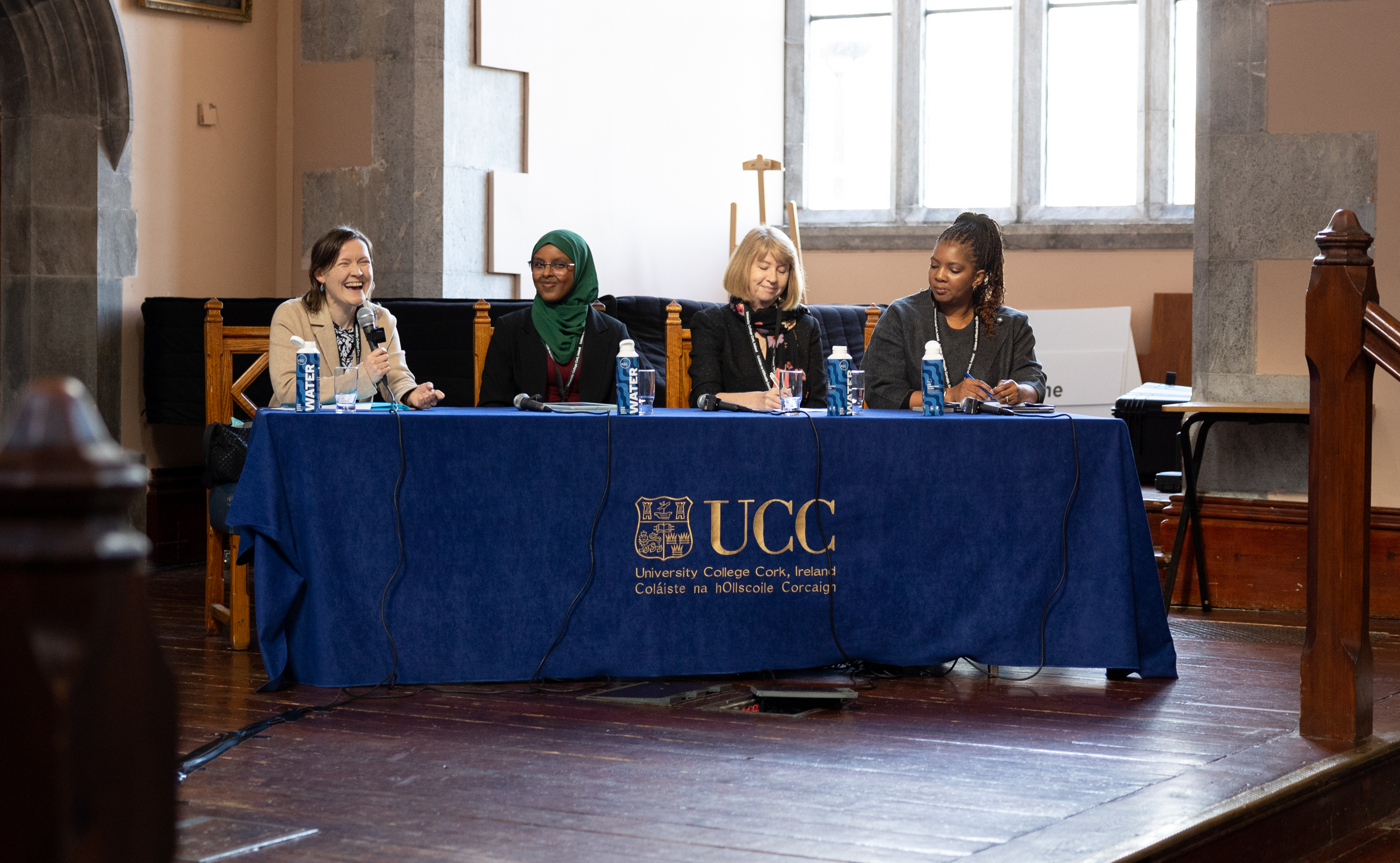Blog
The Youth Climate Justice project hosts its international conference on Child/Youth-friendly Climate Justice: Progress and Opportunities.

‘Our young people want to have their voices heard, and it’s up to us to make sure they’re listened to!' - Niamh Purcell, Child/Youth Biodiversity Assembly (Ireland) Member, at YCJ Conference 2024.
On Monday, 30th September and Tuesday, 1st October, the international conference on Child/Youth-friendly Climate Justice: Progress and Opportunities took place, bringing together an impressive array of voices from all around the world. Hosted by the Youth Climate Justice project at University College Cork (UCC), this interdisciplinary event highlighted how children and youth have emerged as central figures in the fight against the climate crisis, challenging traditional views of children as passive victims.
The conference is a key milestone for the Youth Climate Justice project, which is underpinned by the postpaternalism theory - that children are environmental rights leaders, and we should approach the UNCRC differently. Our keystone journal article on postpaternalism was published the week of the conference, and you can read it here.
The conference featured a distinguished lineup of keynote speakers, each bringing unique perspectives on children’s rights and climate activism. Youth Climate Justice Principal Investigator Aoife Daly gave her introductory address at the conference, emphasising how the views and experiences of children and youth inform all of our project’s work. The words of our project’s Youth Advisory Team were included in a video address.
Among the keynote speakers were Ann Skelton, Chairperson of the UN Committee on the Rights of the Child, and Karabo Ozah, Director of the Centre for Child Law at the University of Pretoria (South Africa). Both highlighted the climate crisis as a children’s rights issue and the power of child-led climate movements and litigation to advance the right to a healthy environment. They were joined by the young climate activist Sumaya Mohammed, co-founder of the Students Climate Action Network and Climate Youth Artivists, whose powerful story and words amplified the importance of receiving climate education and empowering urgent action to mitigate the effects of climate change.
Other key voices included Ursula Kilkelly, Vice President of Global Engagement at UCC, and Bruce Adamson, fellow at Cattanach (Scotland), who both reflected on the hope and inspiration drawn from seeing children and young people take on roles as human rights defenders.
Legal perspectives were provided by Aoife Nolan, Director of the Human Rights Law Centre at the University of Nottingham, and Helen Stalford, Professor of Law at the University of Liverpool, both emphasizing the role of strategic litigation and courts in progressing climate justice for and by children. Elisa Morgera, UN Special Rapporteur on Climate Change and Human Rights, provided insight into how human rights frameworks must adapt to the evolving climate emergency and integrate a children’s rights perspective. Notably, Niamh Purcell, Young Advisor for Ireland’s Children and Young People’s Assembly on Biodiversity Loss, highlighted the powerful and growing youth movement in climate action. Her speech captured the urgency and passion of the youth-led movements calling for immediate action on environmental degradation.
One of the conference’s most significant themes was the call to reinterpret the UN Convention on the Rights of the Child (CRC) in light of child/youth environmental action. The discussions held during the parallel sessions underlined how climate change threatens children’s rights globally and how more interdisciplinary work is needed to enhance the rights of children, and the protection of future generations.
The scholars, practitioners and early-career researchers who participated at the conference collectively ignited a sense of urgency and hope, focusing on the need to empower young people as key agents in decision-making processes about their future. Together, they reflected on the opportunities to integrate child and youth perspectives into policymaking, legal reform, and global climate strategies, ultimately reinforcing the message that child and youth participation is not just beneficial but essential to climate justice.
This event marked a pivotal moment in recognizing children and youth not merely as beneficiaries of climate policies but as active agents of change, capable of influencing global narratives and legal frameworks. The conference fostered a sense of optimism and hope, showing that while the climate crisis remains one of the greatest challenges of our time, the new generation of activists is equipped with the knowledge, passion, and determination to drive meaningful change.

